|
Effective Monday March 23rd 2020: To best protect our team members and our clients/patients, and follow the recommended guidelines of the CDC, we will begin instituting the following changes:
20 Comments
Heartworm Disease is a serious and potentially fatal disease that affects pets in the Unites States and many other parts of the world. It is caused by heartworms that live in the heart, lungs and associated blood vessels of affected pets, causing severe lung disease, heart failure, and damage to other organs in the body. Heartworm disease affects dogs, cats, and ferrets; but heartworms also live in other mammal species, including wolves, coyotes, foxes, sealions and -in rare instances- humans. Because wild species such as foes and coyotes live in proximity to urban areas, they are considered important carriers of the disease. It takes 6 months from the time a pet was bitten by an infected musquitoe to test positive. This delay often leads pet owners into a false sense of security, which is why we recommend yearly testing along with year-round prevention. Signs of heartworms in dogsIn the early stages of the disease, many dogs show few symptoms or no symptoms at all. The longer the infection persists, the more likely symptoms will develop. Active dogs, dogs heavily infected with heartworms, or those with other health problems often show pronounced clinical signs. Signs of heartworm disease may include a mild persistent cough, reluctance to exercise, fatigue after moderate activity. decreased appetite. and weight loss. As heartworm disease progresses, pets may develop heart failure and the appearance of a swollen belly due to excess fluid int he abdomen. Dogs with large numbers of heartworms can develop sudden blockages of blood flow within the heart leading to a life-threatening form of cardiovascular collapse. This is called caval syndrome, and is marked by a sudden onset of labored breathing, pale gums, and dark bloody or coffee-colored urine. Without prompt surgical removal of the heartworm blockage, few dogs survive. Signs of heartworms in catsSigns of heartworm disease on cats can be very subtle or very dramatic. Symptoms may include coughing, asthma-like attacks, periodic vomiting, lack of appetite, or weight loss. Occasionally an affected cat may have difficulty walking, experience fainting or seizures, or suffer from fluid accumulation in the abdomen. Unfortunately, the first sign in some cases is sudden collapse of the cat, or sudden death. What if my pet tests positive?Dogs- No one wants to hear that their dog has heartworm, but the good news is that most infected dogs can be successfully treated. The goal is to first stabilize your dogs if he is showing signs of disease, then kill all adult and immature worms while keeping the side effects to a minimum. Cats- Like dogs, cats can be infected with heartworms. There are differences, however, in the nature of the disease and how it in diagnosed and managed. Because a cat is not an ideal host for heartworms, some infections resolve on their own, although these infections can leave cats with respiratory system damage. Heartworms in the circulatory system also affect the cat's immune system and cause symptoms such as coughing, wheezing, and difficulty breathing. Heartworms in cats may even migrate to other parts of the body, such as the brain, eye, and spinal cord. Severe complications such as blood clots in the lungs and lung inflammation can result when the adult worms die in the cat's body. 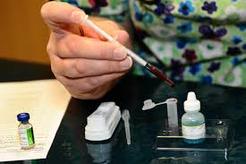 Testing for heartworm only requires 3 drops of blood, stool samples will not show heartworm disease as it is not an intestinal parasite but one that resides in the blood stream. I have missed 2 months of HW prevention, what do i do now?You need to consult your veterinarian, and immediately re-start your dog on monthly preventative-then retest your dog 6 months later. The reason for re-testing is that heartworms must be approximately 7 months old before the infection can be diagnosed. For more information on heartworm disease, check out the american heartworm society's website or talk to your veterinarian! The weather so far this year has been much too wet for picnicking, but as the ground dries and Labor Day approaches we will see more and more families packing up to go eat at their favorite places. Most commercials would have you believe that in order to have fun at a picnic, all you need is good food, a comfortable spot, and their brand of disposable utensils, but those of us with children, both furry and not, know it is never that simple. While I may not have any tips for how to keep your human children from getting into trouble, I do have a few tricks up my sleeve that can help keep your pets happy and safe during your next family picnic. 1: Plan out your meal: Those of us with animals know that some of our "human food" can be toxic to animals. With that being said it is best to avoid packing these foods so your animals have no chance of coming into contact with it. Most commonly ingested are: -grapes -raisins -chocolates -anything containing the artificial sweetener XYLITOL (baked goods, diet peanut butter, gum, candies, etc.) While not toxic, many of our favorite outdoor foods can be dangerous if swallowed by our pets; if you pack these foods, be sure to bring a close-able container for these food remnants. -anything containing bones (ribs, chicken legs, bone-in pork chops). -cores such as the cob of corn or pit of a peach. 2: If your furry friends are joining you on your outing, be sure to pack their favorite water dishes so that they can stay hydrated. Dogs cannot sweat in the warm weather so they need to be kept in the shade whenever possible and have regular access to COLD water. If you pack ice in your cooler, we recommend to throw a few ice cubes in their water dish so it can remain cool. This should go without saying, but NEVER leave your dog or any living creature in the vehicle without the a/c on. Even with the windows cracked, the temperature inside the vehicle rises drastically and it can cause distress within minutes. Keep your animal with you outside of the vehicle until you are ready to get in yourself. 3: Pick a spot away from playgrounds and hiking trails so that you can relax with only minor interruptions from those around you. Even the most social and well-behaved animal can become overwhelmed when surrounded by unfamiliar people/children or if a bike appears from the trail a few feet away. If it is a holiday where loud noises or crowds will be involved, it is best to stick to the outskirts, or keep your pet at home. Fireworks in particular are a huge stresser for animals and lead to the most amount of animal run-away's annually. 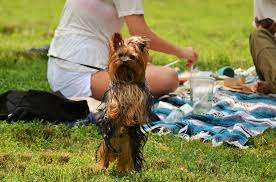 4: Tying into what we just covered, it is imperative to always have your pet on a leash with up-to-date tags whenever the pet is outside of the home. Microchipping is a great way for pets to be identified when taken to a shelter or clinic, but without a scanner the only identity marker a pet has are its tags. If the pet were to get away from you without an ID tag and/or microchip, your pet is 90% likely to not be returned to you. If the pets have ID tags, they are usually returned to the family much sooner than those that only had microchips. 5: Possibly the most ignored and understated tip is your pet may need sunscreen just as much as you! Most light haired pets and those with very short haircuts need skin protection against the suns harmful rays. Human labeled sunscreen may not be right for your pet, be sure to speak with your veterinarian to ensure you have your pet protected properly. We love for our pets to be with us as a part of our families whenever possible, and we try to make everything safe for all of us. Unfortunately there are times where it is simply best to keep your pet at home. Your home is your pet's "safe place" and most pets are not conditioned to be out in hot weather, crowds, near strangers, or other pets. Keep your pets attitude and physical condition in mind before taking them out and about with the family. Keep your animals safe this summer with these helpful tips and have fun! With Independence Day right around the corner, this seemed like the perfect opportunity to discuss noise aversion and the many ways it affects our pets. Many of us have our favorite spots in town to lay under the stars and wait for the fireworks to light up the sky, but what most people fail to think of is that our pets do not comprehend these noises and lights as fireworks; most pets think that the sky is quite literally exploding and they need to find cover ASAP or simply make a run for it! The Fourth of July has the highest rate of runaway pets, more than any other day of the year! But do not fear, there are many things you can do to help ease your pets anxiety and help you both get through this holiday together.
First thing you can do to help your pet is to identify the signs of noise aversion: -trembling or shaking -hiding -following you closely -panting or drooling -pacing or acting restless -whining or barking -trying to escape or chewing on furniture, doors, or crate -submissive urinating in the home Your pet could show just one of these signs or numerous, each pet is different. Once you've identified that your pet has a noise aversion, it is time to act. Use these tips on how to help your pet lower their anxiety: 1- Anytime there is loud noise in your neighborhood (thunder, fireworks, construction, festivals) it is advised to create "white noise". That can be a TV, a radio, or even a loud fan. Anything that can help drown out the noise from outside. 2- Create a safe place for the pet. This is somewhere they can go where they feel secure. For many pets this can be their crate, for others it can be underneath an end table or in your bed. These safe places are usually small and dark to help them feel separated from the outside world. 3- When possible, stay home with the pet to help ease their stress. You are their rock and your presence can go a long way! Do not force the pet to lay with you; only hold the pet if they approach you for comfort. Forcing them to lay during their high stress could result in a bite from the pet. 4- Sometimes medication may be necessary. There are quite a few different anti-anxiety medications and like human medications, one is not always right for every pet. It is recommended you visit your veterinarian to discuss which would be right for your pet. Pets who have noise aversions are not unlike those with separation anxiety and need to be treated with care. They are sensitive and should never be punished for these behaviors. Talk to your veterinarian if these behaviors persist and/or are getting worse. Once you have identified that your pet has a noise aversion half of the battle is already won, from there you just find what works the best for the both of you. Every human-animal bond is different, so what works for your pet might be totally different from others, but that's ok your pet is just as unique as you are! So this 4th of July let us keep our pets home and safe during the fireworks! |
AuthorLauren Quinn Archives
March 2020
Categories |
We operate by appointment only, please contact us via phone or online to set up a time for you and your pet!
Business Hours:
Monday 9:00 AM-5:00 PM
Tuesday 9:00 AM-5:00 PM
Wednesday 9:00 AM-12:00 PM*
(no appointments)*
Thursday 9:00 AM-5:00 PM
Friday 9:00 AM-12:00 PM
Sat & Sun Closed
|
Tel: (260)424-1689
Fax:(260)424-0700 |
|
|
|
Site powered by Weebly. Managed by IDEXX Laboratories
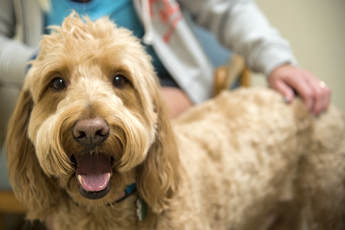
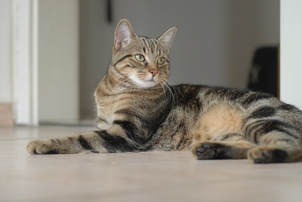
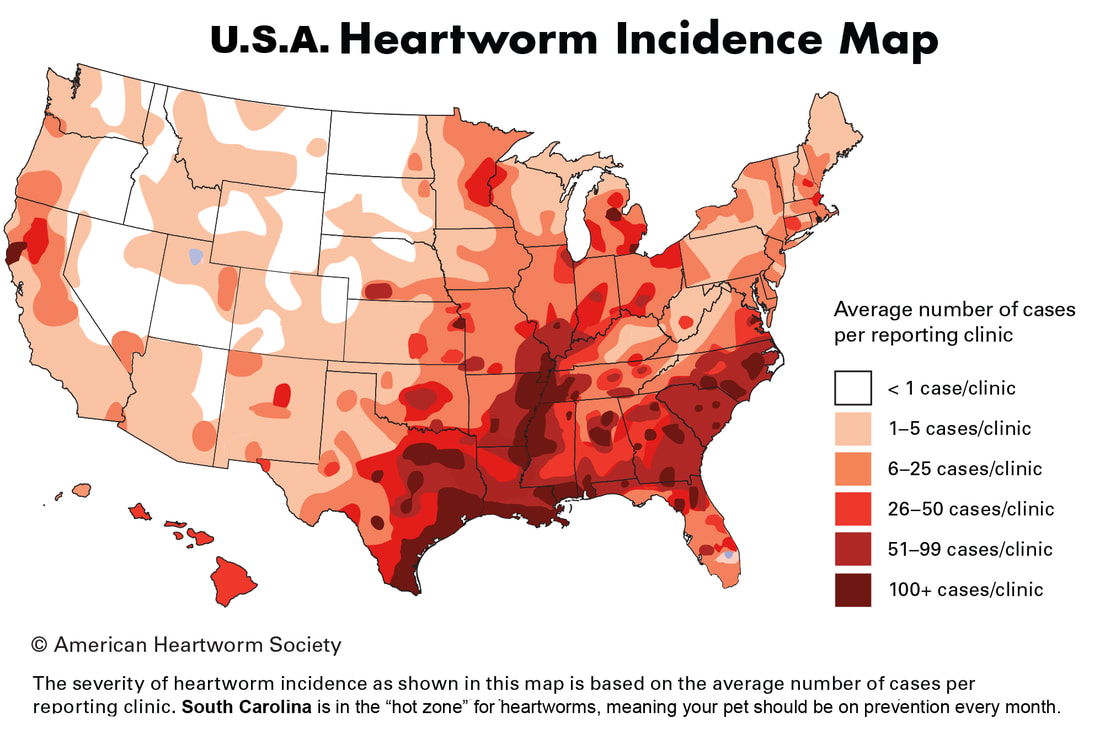

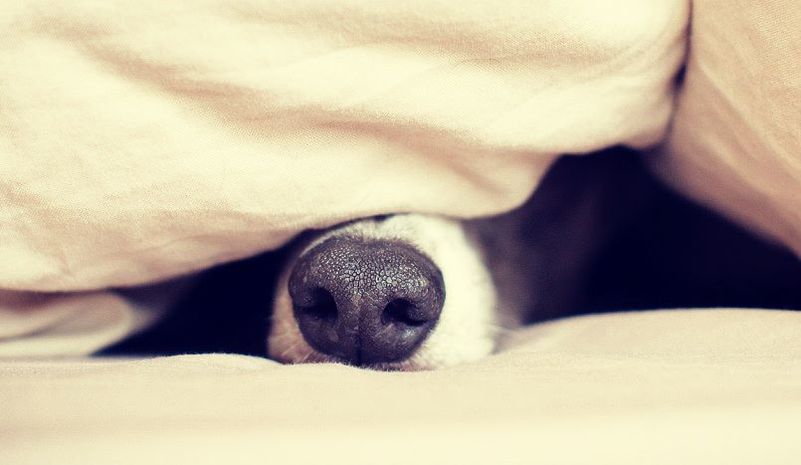
 RSS Feed
RSS Feed
